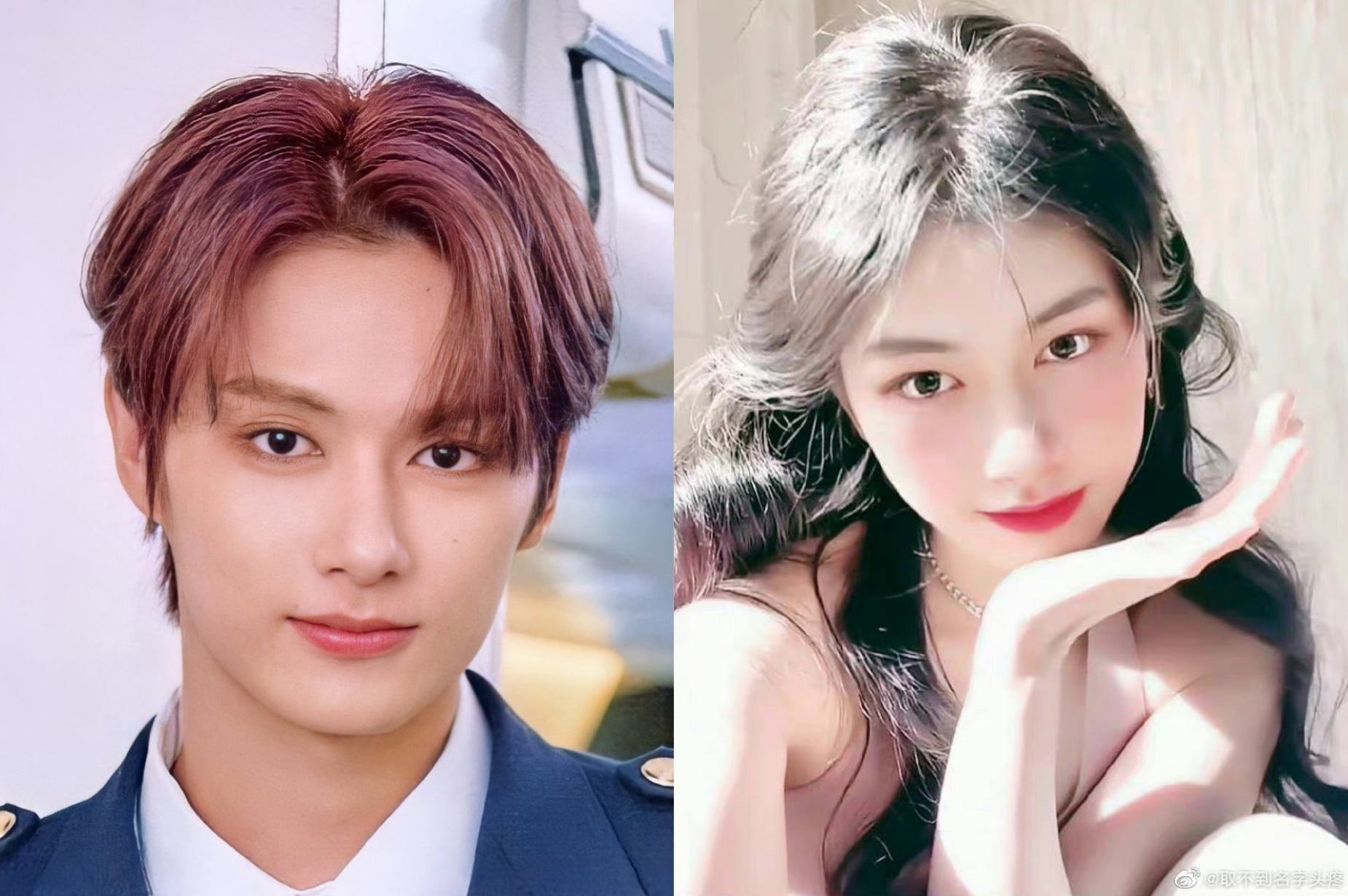The fantastical queer world of nisu
In some fan circles on the Chinese internet, male celebrities are being reimagined with feminine traits in edited images and erotic literature. For female fans, the online trend is their statement of sexual liberation and quiet resistance to traditional masculinity in mainstream media.

In some fan circles on the Chinese internet, male celebrities are being reimagined with feminine traits in edited images and erotic literature.
For female fans, the practice, known as nísù 泥塑, is their statement of sexual liberation and quiet resistance to the push of traditional masculinity in mainstream media.
“I think nisu is like cosmetic surgery for male idols,” Rachel, a 21-year-old college student, told The China Project. She was introduced to nisu three years ago and has been in love with it ever since. “Have you seen these photoshopped pictures of men with long hair? They make the men much more appealing by giving them beautiful feminine features.”
To understand the meaning of nisu, it’s important to get familiar with the concept of sū 苏, which, in Chinese fanfiction vocabulary, stands for admire or adore, often in a way that involves a fan imagining a romantic relationship with a celebrity or a fictional character of the opposite gender. The term was originally a Chinese shorthand for mǎlìsū 玛丽苏, or “Mary Sue,” which is the name of a character archetype in Chinese fiction. Usually young, pretty, and female, a malisu is someone who is often portrayed as inexplicably competent across all domains, gifted with unique talents or powers, liked or respected by other characters. For some female authors, it’s an idealized version of themselves.
A new type of gender-bending?
Nisu, literally meaning “mud-sculpting,” is a homophone of nísù 逆苏, which could be translated as “reversed su.” In examples of nisu, the gender of the celebrities or fictional characters are altered, with the majority of nisu creators being young women who imagine their male idols to be female. There are a variety of ways to engage in the culture of nisu, mainly through creating and circulating fan-created pictures, videos, and fanfiction on social media platforms like Weibo.
In a way, the trend is a response to China’s crackdown on effeminate men in the entertainment industry, a campaign launched in 2021 as officials believed that the nation’s overprotected teenage boys were becoming physically and emotionally weak, leaving China with a “crisis of masculinity.” For some Chinese fans, nisu’s radical feminization of male idols offers them a comparatively free space where they can negotiate their understandings of gender and express their own (usually sexual) fantasy.
There’s also zhěngsù 整肃 — literally meaning “orderly and serious” — in relation to nisu. Ava, an active member of the nisu community, told The China Project that whereas zhengsu proponents enjoy official materials released by their idols’ agencies, which almost always boast of male celebrities’ masculinity, nisu adherents look elsewhere to discover alternative aspects in a celebrity’s image. This would typically mean disregarding a celebrity’s manhood and finding instances where the idol displays femininity.
“For example, if he looks pure and innocent in a picture, we’ll call him ‘younger sister,’” Ava said. “If he appears in a very mature outfit, then we can call him ‘older sister.’”
When FiFi, a 21-year-old female college student, first joined a fandom at a younger age, she had a difficult time understanding why male idols were written as women in some works of fanfiction, she told The China Project. “Perhaps that’s because back then I had a very fixed understanding of gender. I thought these fans were a bit crazy,” she said.
China news, weekly.
Sign up for The China Project’s weekly newsletter, our free roundup of the most important China stories.
Her mindset changed when she became a fan of Zhèng Yúnlóng 郑云龙, a Chinese singer who shot to fame after appearing in the 2018 HunanTV reality show Super Vocal. FiFi cites two main reasons why she became Zheng’s nisu fan.
“First, he possesses feminine traits that sometimes are more obvious than his masculine traits. Second, his fans are really good at discovering these feminine traits and creating works based on them,” she said.
Mom has a ripped body
On Weibo, there’s a wealth of digitally-altered pictures of Zheng with long hair and fan-made videos that pair him with other male celebrities. FiFi said that many nisu fans of Zheng would call him “mom” because he frequently shows great care for other participants in reality shows. But it’s also because the ripped singer has a “really big chest,” FiFi added.
Another popular practice in the nisu community is “shipping,” a longtime fandom activity that involves people rooting for two characters or two real-life celebrities to get together romantically. In some works of nisu fanfiction, shipping translates to explicit descriptions of sexual intercourse between two male celebrities, with one of them being imagined as a woman. A common trope in this genre is intersex, where the “woman” has both male and female genitals.
“The point is that although he looks like a man, he is actually a woman,” Ava explained. “This gives you a pleasant surprise. And it is fun because it is so different from how this person presents himself as an idol.”
Norah Chow, a researcher at the University of Hong Kong, recently completed her MPhil dissertation on nisu-related accounts on Weibo. Having followed their content closely since 2018, Chow points out that while nisu practices have long existed on the Chinese internet, it was not until recently that the subculture became mainstream and normalized. As its popularity grew, nisu’s liberating effects were also brought to the fore.
“In 2018 and 2019, most nisu fans rejected the description that they were ‘feminizing’ male idols,” Chow told The China Project. “But in 2021, following the ban on ‘sissy men’ on Chinese television, they embraced the label of ‘feminization’ because of the belief that femininity should not be seen as inferior.”
The most liberating aspect of nisu, Chow emphasizes, is how it enables Chinese women to assert dominance in their narratives, through which they have become more vocal and more confident in expressing their sexual desires. “So one may ask, does nisu symbolize the rise of feminism in China?” she said, adding that this female-centered sexual expression is unprecedented in Chinese society.
However, nisu also has clear limitations. According to Chow, “all nisu practices reproduce the entertainment industry’s commercial logic. Also, the popularization of non-traditional masculinities seems to be based on an imagination of essentialized femininity.”
Other LGBTQ stories:
Two college students in China were disciplined for giving out pride flags. Can the law help them? (The Diplomat)
“The case illustrates the intersection of a tightening grip on LGBTQ expression, especially on college campuses, and the determination of some young Chinese to fight for more space.”
Hong Kong lawmaker’s petition opposing Gay Games is prejudiced, activist says (Hong Kong Free Press)
A Hong Kong LGBT+ activist has said that a local lawmaker’s petition opposing the city’s co-hosting of the Gay Games, which is scheduled to take place in November, is prejudiced, adding that associating the event with national security risks is “far from the truth.”
Queer China is our fortnightly round-up of news and stories related to China’s sexual and gender minority population.






